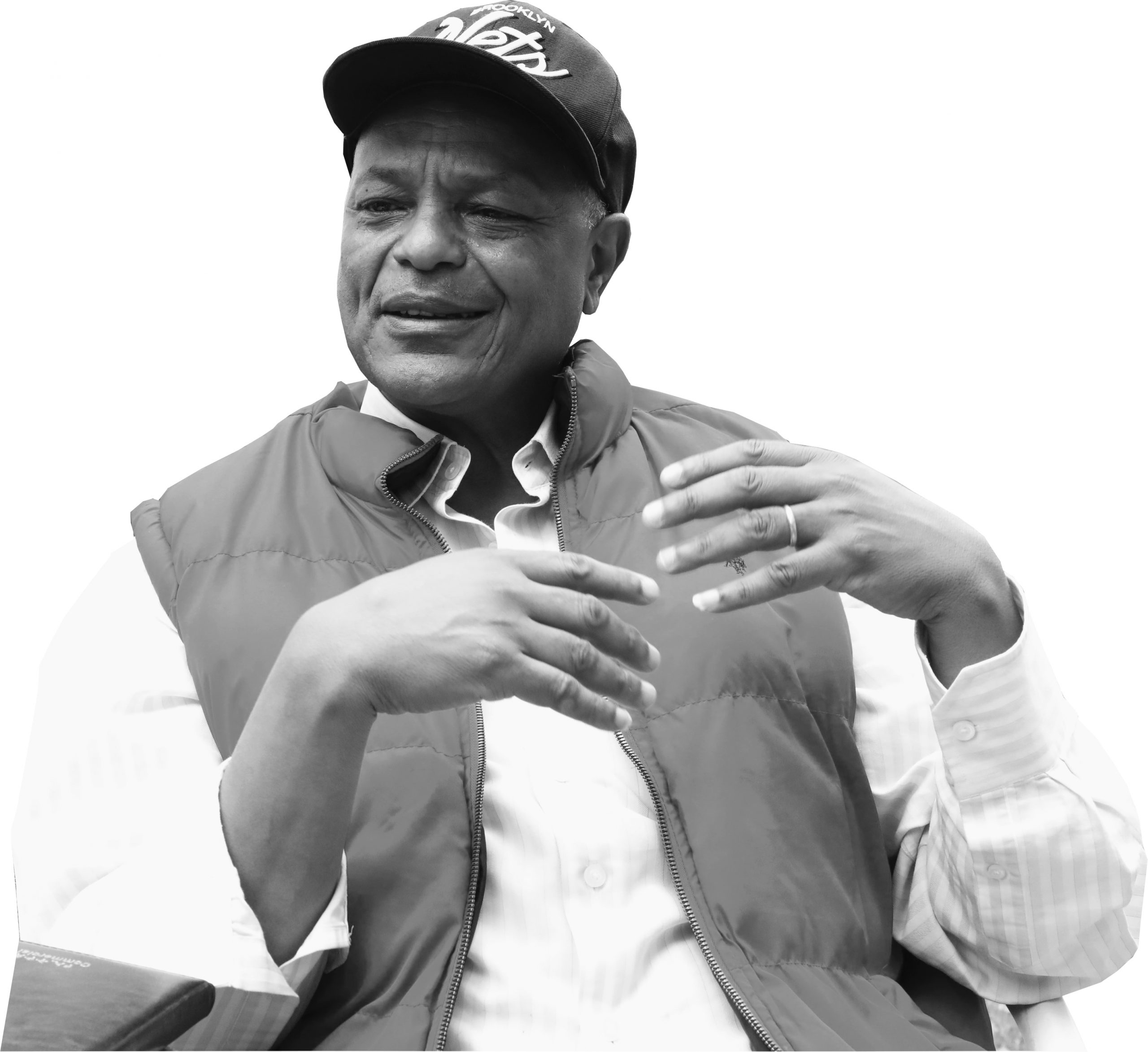
Today’s guest is Girma Balcha who was serving as a diplomat in Egypt. He was born and grew up here in Addis. He studied Supply Management at Commercial College and later proceeded to Addis Ababa University to study Business Management and completed in 1997.
After graduation, he started his career in Urban Planning Commission and served for six years. He then moved to Main Department for Immigration & Nationality Affairs where he served at different positions. He then left for Egypt in 2005 as a diplomat and served for six years.
Besides serving as a diplomat, he has been researching on the Nile River for more than a couple of decades. He has published his research works and books on the Nile. The Ethiopian Herald stayed with him to share his views on recent controversies on the Nile issues. Excerpts:
Herald: As a diplomat who served in Egypt, how do you view the bilateral relations of Ethiopia and Egypt?
Girma: The governments of both countries have long-standing diplomatic ties. They had enjoyed well-established bilateral relations particularly before the European countries came to Africa. Their diplomatic relations can be considered as one of the oldest in the world. Besides having similar interests to ensure sustainable peace in the Horn of Africa by combating terrorism, both are also members of the Nile Basin Initiative.
Above all, religion has been playing a crucial role in cultivating their ties for several years. Popes that used to lead Ethiopian Church were coming from Egypt. For instance, 110 popes were appointed to lead the Ethiopian Orthodox Tewahedo Church by Egyptian Coptic Orthodox Church until 1959.
Herald: When Ethiopia was to begin the construction of the largest hydroelectric power plant (GERD) in 2011, it consulted the downstream countries and initiated the establishment of a tripartite committee to review the design and study documents. Furthermore, it has been paying attention to the concern of Egypt in using the Nile River and working on establishing win-win relations that enhance the benefits of the whole downstream nations. Unfortunately, we cannot see when Egypt is grateful to Ethiopia’s commitment. Even it sometimes appears to deny Ethiopia’s right to use the water. How do you see Egypt’s stance in this regard?
Girma: Before I answer your question, let me talk about the history of dam building by the Nile basin countries. Dam building has more than 120 years of history on the Nile River.
The first dam was built on the Nile in 1894 near to the present day of the Aswan Dam. Then in the 1960s, Egypt built its biggest dam which is known as the Great Aswan Dam by the support and finances of the then Union of Soviet Socialist Republics. The dam has the capacity to provide water for around 33,600km² of irrigation land.
The second country that built dams on the Nile River was Sudan in 1919 and1933. These were small in size. And in 2009, Sudan inaugurated the biggest dam known Merowe Dam. Uganda also built its first dam in the 1940s and recently in 2012 inaugurated Bujagali Dam.
From this, one can understand that dam building is not a new phenomenon in the Nile basin. Ethiopia is a latecomer in building dams. It joined them several years later, in the 1970’s when it inaugurated Fincha Hydro-electric Dam. Then in 2011, it started the Grand Ethiopian Renaissance Dam that would be the largest hydroelectric power plant.
Egypt, a nation which was the first to built a dam without acknowledging rights of countries in the basin, has repeatedly been opposing the construction of the GERD. This is morally wrong. From the outset, Former President of Egypt Gamal Abdul Nassir, the then Champion of the Arab world, ignored Ethiopia’s demand to cooperate in utilizing the river and took unilateral measures to build Aswan Dam. His action was a clear violation of international law and has remained to be a cause for the present day’s controversies in the Nile basin.
On the contrary, Ethiopia has started GERD construction with the consent of Egypt and Sudan. That is to say, the three countries agreed to choose the international panel of experts (IPoE) to look into the various issues surrounding the construction of the dam. The committee has issued a report on May 2013 ensuring dam safety.
All those efforts by Ethiopia have a great deal in avoiding disputes and developing confidence among the downstream countries.
Egypt’s inappropriate stance on the Nile is an old fashion argument and derived from colonial thought in the 19th century. The Nile is international water to be shared by countries fairly.
So, Egypt has no legitimate right to deny others from using the resources. What Egypt claims a “historical” right theory is outdated and we cannot find a single article on the United Nation Watercourses Convention (UNWC).
Though in the past, Egypt had colonial made monopoly in using Nile water; that situation has already been changed forever. Egypt should accept the Nile Basin Initiative rules and regulations; and sign what is known as the Entebbe Agreement of 2010 (CFA). That is the only way for Egypt to benefit in the Nile basin.
Egypt, in order to monopolize the entire flow of the Nile, does not want to see prosperous and peaceful Ethiopia. It has tried several ways to weaken Ethiopia though all its attempts failed. Among them are waging proxy wars, pseudo cooperation, threats, and third-party pressures. It claims to make Ethiopia and other upstream countries hydropower colonies.
Such a stance is illegitimate and unacceptable. Even the very approach itself is not up to the 21st century. It has no right to interfere in Ethiopia`s legitimate and sovereign right to use the waters of the Nile.
Herald: How do you see Ethiopia’s consistent commitment to cooperation while planning to use the water resources? How do you view Ethiopia’s stance in general?
Girma: Under international law and the 1997 United Nations Watercourses Convention, any country in the basin has the right to use the resource under its domain. As to Ethiopia’s right to use its water resources, no one can raise any question. It has a legitimate right to develop and use it as properly as possible. Contributing more than 86 percent of water for the basin, it has a full right to utilize without causing significant harm to the downstream countries.
Ethiopia is the major contributor to the water in the basin and also Ethiopia is a country whose population is living under severe poverty. Half of the Ethiopian population doesn’t have access to electricity and live without light. All these necessitate Ethiopia’s commitment to exercise its legitimate right to develop its resources and alleviate its people from poverty. It can claim fair share from the Nile River for electricity and for food sufficiency.
Herald: Recently, Trump adminis tration stated, “Final testing and filling should not take place without an agreement.” Along with the World Bank, it tried to pressure Ethiopia. Ethiopia decided to commence filling, based on the principles of equitable and reasonable utilization without causing significant harm on others. Does the U.S have any proper authority to interfere with Ethiopia’s sovereignty and subject her against its national interest?
Girma: Since America is a superpower country and has a well-known expertise in the transboundary river system, having it as an observer or mediator is not a problem that much; it can rather be seen as an opportunity. But the current position of America, I think, has been accompanied by a great irresponsibility. The US department of the treasury is not the right body to impose inappropriate demand on Ethiopia; it is beyond its mandate and expertise.
So the whole problem emanates from the assignment given to the wrong body which can’t deliver fruitful results. Statement by the Secretary of the Treasury on GERD at the end of February was undiplomatic, short-sighted and direct interference on Ethiopia’s sovereign right which cannot be accepted by any standard. Hence, position of the Ethiopian government in this regard is correct and supported by its people.
On the other hand, drafting of the agreement by the US without the consent of all parties raises a question of its neutrality. It is also an act of an illegal intervention into the external affairs of Ethiopia under international law.
Secretary Mnuchin’s statement about, “dam tasting and filling should not take place without any agreement” is futile because there is no existing document to be initiated or signed; such an agreement can only come about as the fruitful result of the participation by representatives of all three nations. Mnuchin has no legal or political authority to instruct Ethiopia over the GERD.
Herald: As a diplomat and researcher on the Nile issues, what would you propose for the tripartite nations?
Girma: Nile River is somehow for many years considered as a cause of mistrust and source of conflict especially among the eastern Nile riparian countries. Now, we are in the 21st century where the world by and large governed by cooperation and collaboration.
So, Nile Basin should be transformed to source of cooperation and economic integration. Ethiopia, Sudan, and Egypt have so many opportunities that can transform their economies for better if they work together. These countries have more than 250 million population sizes that can be a good market for their economic development and other mutual benefits. They can develop more joint projects on the river Nile and generate huge economic success. So they should turn their face towards cooperation and mutual benefit.
Third-party interference, arbitration or mediation will not resolve potential conflicts in the Nile Basin. The only way out is accepting the principles of equitable utilization without causing significant harm to others, as per the Entebbe agreement.
The Ethiopian Herald March 31/2020
BY WAKUMA KUDAMA





